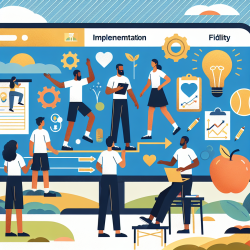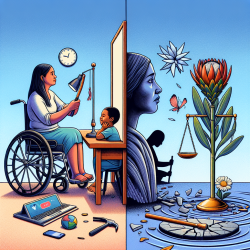Introduction
In an era where technology seamlessly integrates into daily life, the potential of mobile health (mHealth) applications to transform health outcomes is profound. Recent research titled "Receptiveness and Preferences of Health-Related Smartphone Applications among Vietnamese Youth and Young Adults" provides valuable insights into the utilization and acceptance of mHealth apps in Vietnam. This blog explores how practitioners can leverage these findings to enhance their services and encourage further research.
Understanding the Research
The study conducted a cross-sectional survey among 1,028 Vietnamese youths and young adults to assess their usage and preferences for health-related smartphone applications. Despite the widespread availability of smartphones, only 14.1% of users had downloaded health-related apps, primarily for disease prevention. However, satisfaction with these apps was high, with 92.8% of users expressing contentment with their functionality.
Key Findings
- Low Utilization but High Satisfaction: While the uptake of mHealth apps was low, those who used them reported high satisfaction, indicating a potential for growth if barriers are addressed.
- Employment as a Predictor: Employed individuals were more likely to download mHealth apps, suggesting that economic factors may influence app adoption.
- Health Status Influence: Youths with lower health-related quality of life (HRQOL) were more inclined to use health apps, highlighting a need for targeted interventions.
Implications for Practitioners
For speech-language pathologists and other health practitioners, these findings underscore the importance of integrating technology into therapy services. Here are some actionable steps:
- Develop Tailored Interventions: Design mHealth apps that cater to the specific needs of youth, focusing on disease prevention and quality of life improvement.
- Promote Accessibility: Address barriers to app adoption by ensuring apps are affordable and available in local languages.
- Encourage Further Research: Conduct studies to optimize app content and interfaces, ensuring they meet the evolving needs of young users.
Encouraging Further Research
The study highlights the potential for mHealth apps to improve health outcomes among Vietnamese youth. However, further research is needed to explore how these apps can be optimized for greater impact. Practitioners are encouraged to collaborate with researchers to develop evidence-based interventions that leverage the power of technology.
Conclusion
By embracing the insights from this research, practitioners can play a pivotal role in enhancing the health and well-being of youth through innovative mHealth solutions. As we continue to explore the potential of technology in healthcare, the possibilities for improving outcomes are limitless.
To read the original research paper, please follow this link: Receptiveness and preferences of health-related smartphone applications among Vietnamese youth and young adults.










